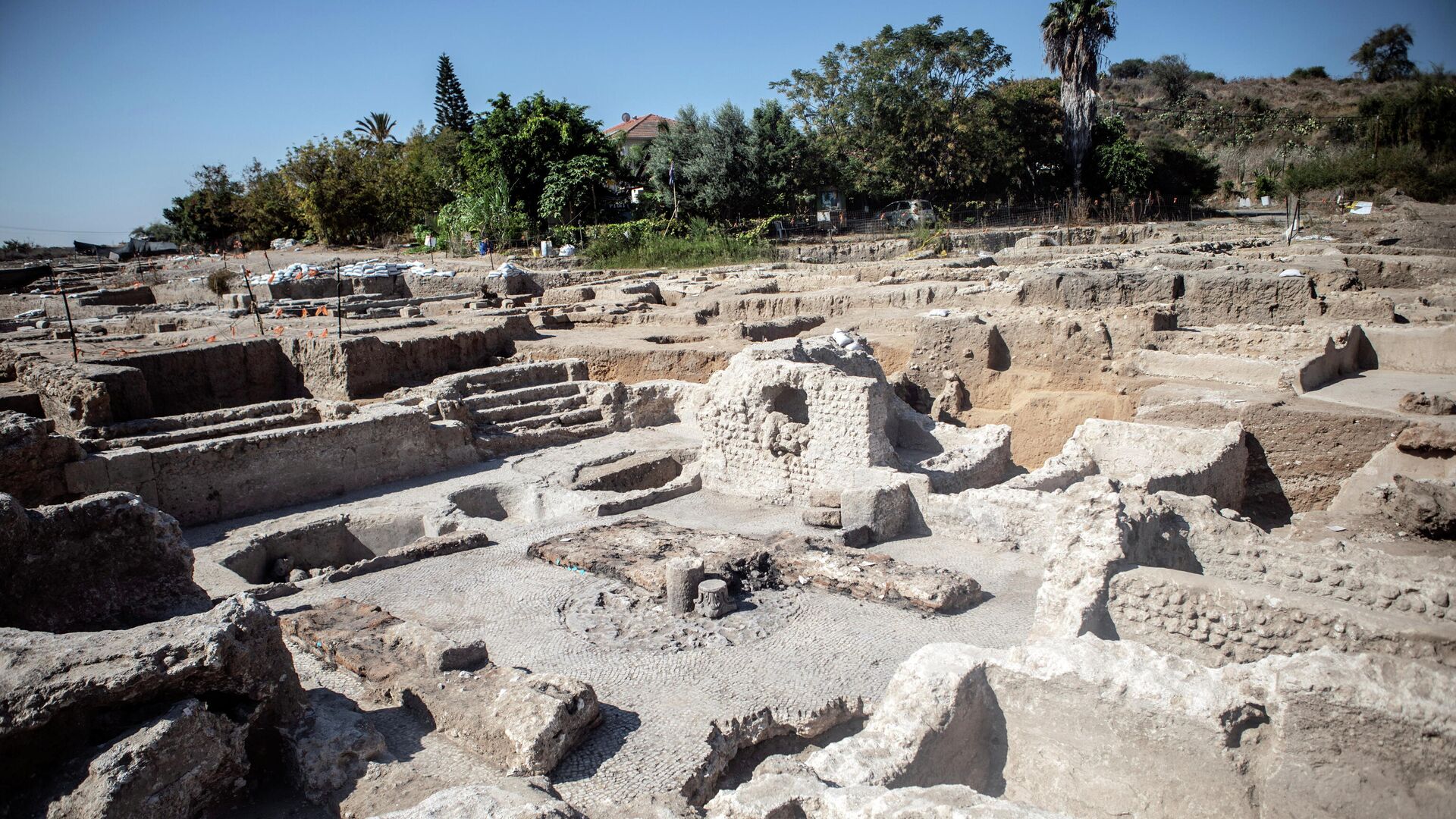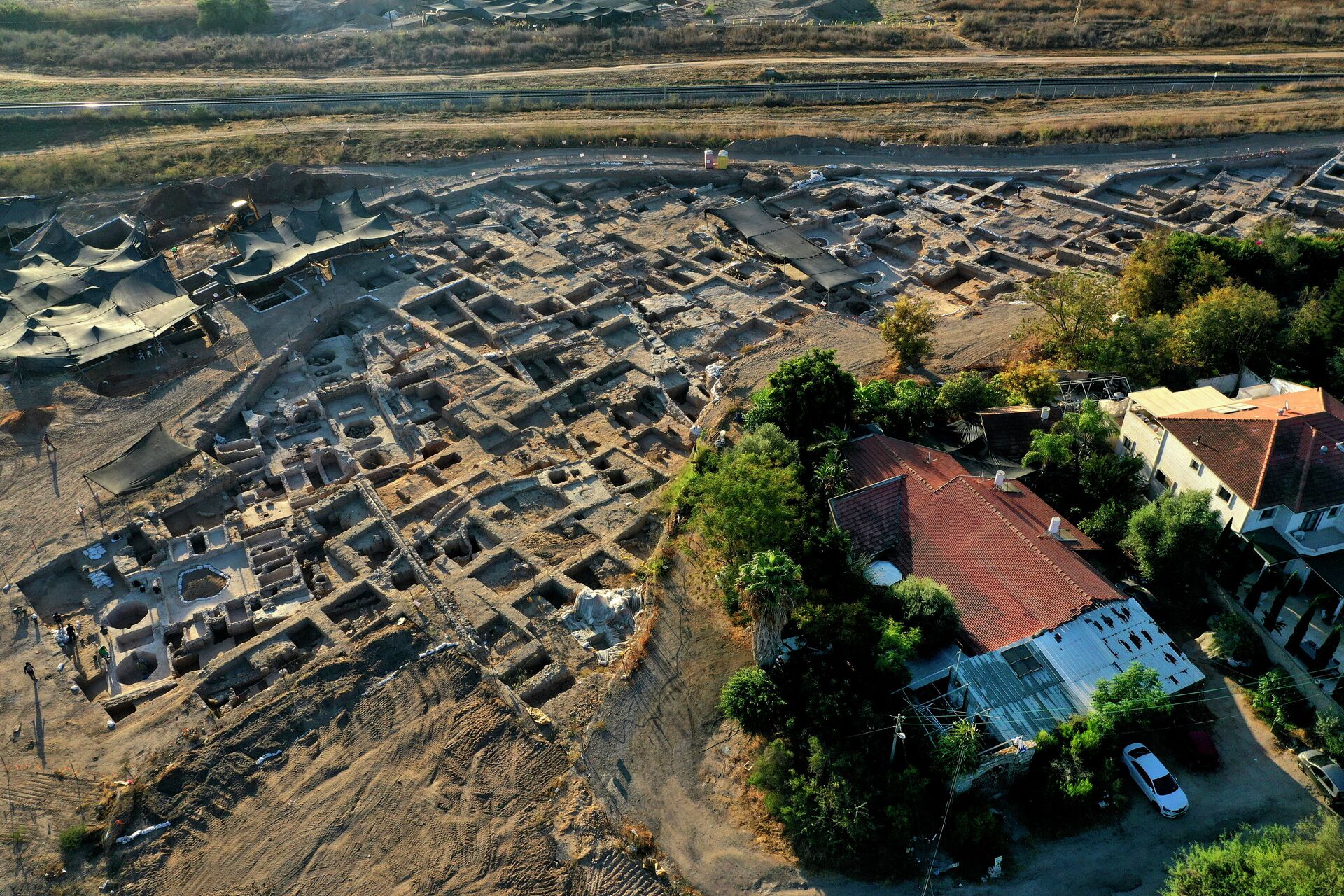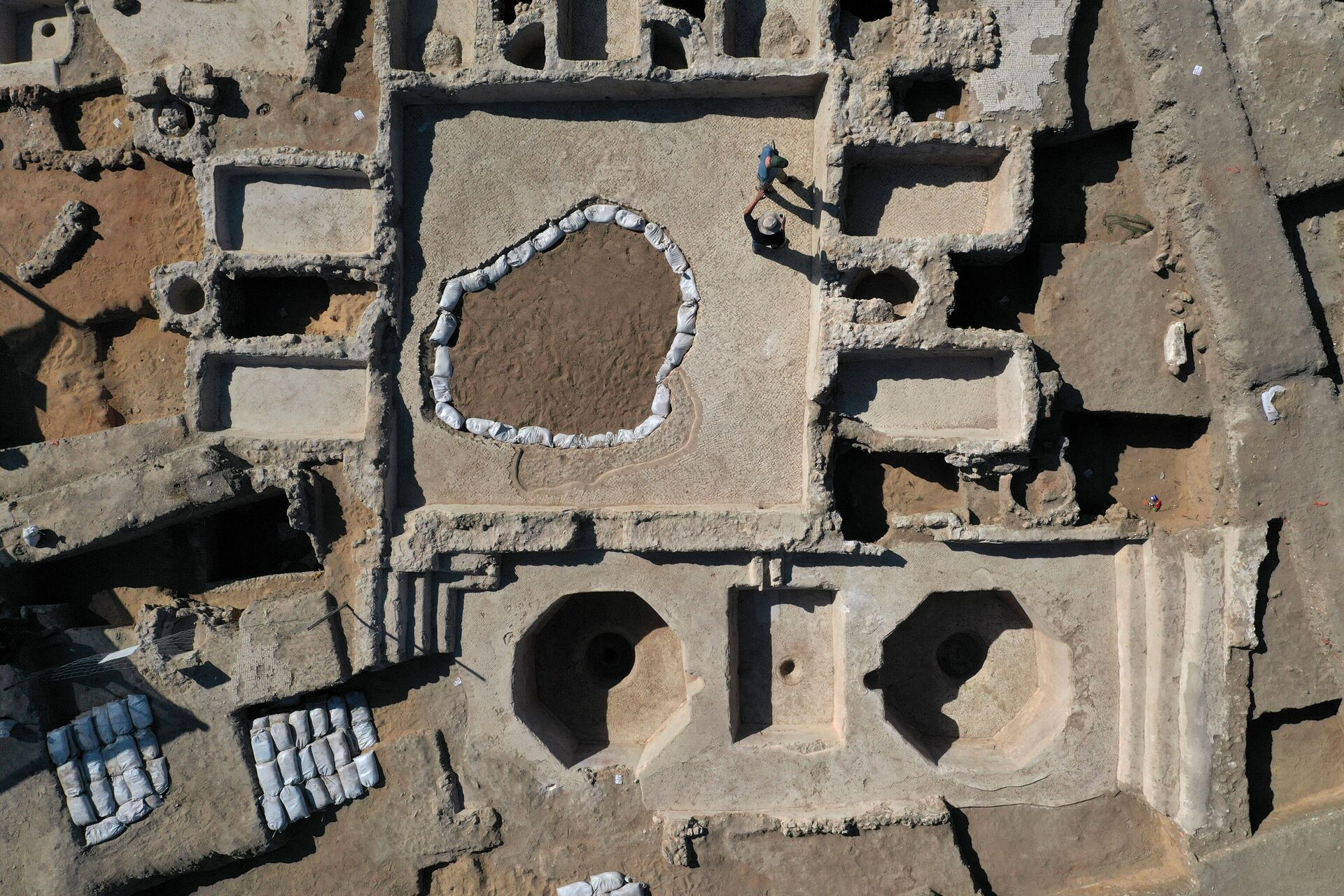Fine Wine: Archaeologists Discover World's Biggest Byzantine Winery - Photos, Videos
04:47 GMT 12.10.2021 (Updated: 10:58 GMT 07.04.2025)

© REUTERS / NIR ELIAS
Subscribe
Drinking wine diluted with water was prevalent among adults and children because of the poor quality of the water during antiquity and the Byzantine period
A vast wine factory dating back about 1,500 years to the early Byzantine, or Eastern Roman Empire, has been uncovered in Israel, making it the largest known Byzantine winery ever discovered.
According to the Israel Antiquities Authority, the complex facility uncovered in Yavne, central Israel, could manufacture about two million litres of wine each year. The UK's Daily Mail, for comparison, noted that Britain presently produces a little under eight million litres of the alcoholic drink per year.
The 6th-century winery is thought to have produced one of the best white wines in the Mediterranean at the time. It was known as Vinum Gazetum or Gaza wine because it was shipped from an ancient port city near modern-day Gaza and was much appreciated in Byzantine literature, according to an NPR report.

This picture taken on October 11, 2021 in Israel's central city of Yavne shows a general aerial view of the Tel Yavne excavation site, where a massive wine production facility was discovered, the largest such complex of winepresses known from the Byzantine Period.
© AFP 2023 / MENAHEM KAHANA
Archaeologists discovered a massive complex consisting of five winepresses, four large warehouses where the wine was matured, kilns where the clay wine jugs were baked, and tens of thousands of shattered jug fragments.
The media reports about the discovery noted that scientists had excavated almost 7 sq km of land for two years as part of a plan by the Israel Land Authority to extend Yavne into the surrounding area.
The excavated ancient city was a Christian town with three major churches, but at the same time, around 520 CE, there were also Jewish and Samaritan populations in the town.
"We were surprised to discover a sophisticated factory here, which was used to produce wine in commercial quantities", the authors are quoted in the Daily Mail report as saying. "A calculation of the production capacity of these winepresses shows that approximately two million litres of wine were marketed every year, while we should remember that the whole process was conducted manually".
Quite interestingly, more than 2,300-year-old winepresses were also discovered during the dig, indicating a long history of winemaking in the area. After the destruction of Jerusalem in 70 AD, Jewish religious sages assembled at the "vineyard of Yavne", according to the researchers, citing the Talmud.
The scientists alleged that everyone understood this was a Holy Land product, and everyone wanted more and more of this wine.

This picture taken on October 10, 2021 in Israel's central city of Yavne shows an aerial view of a winepress at the Tel Yavne excavation site, where a massive wine production facility was discovered, the largest such complex of winepresses known from the Byzantine Period.
© AFP 2023 / MENAHEM KAHANA
